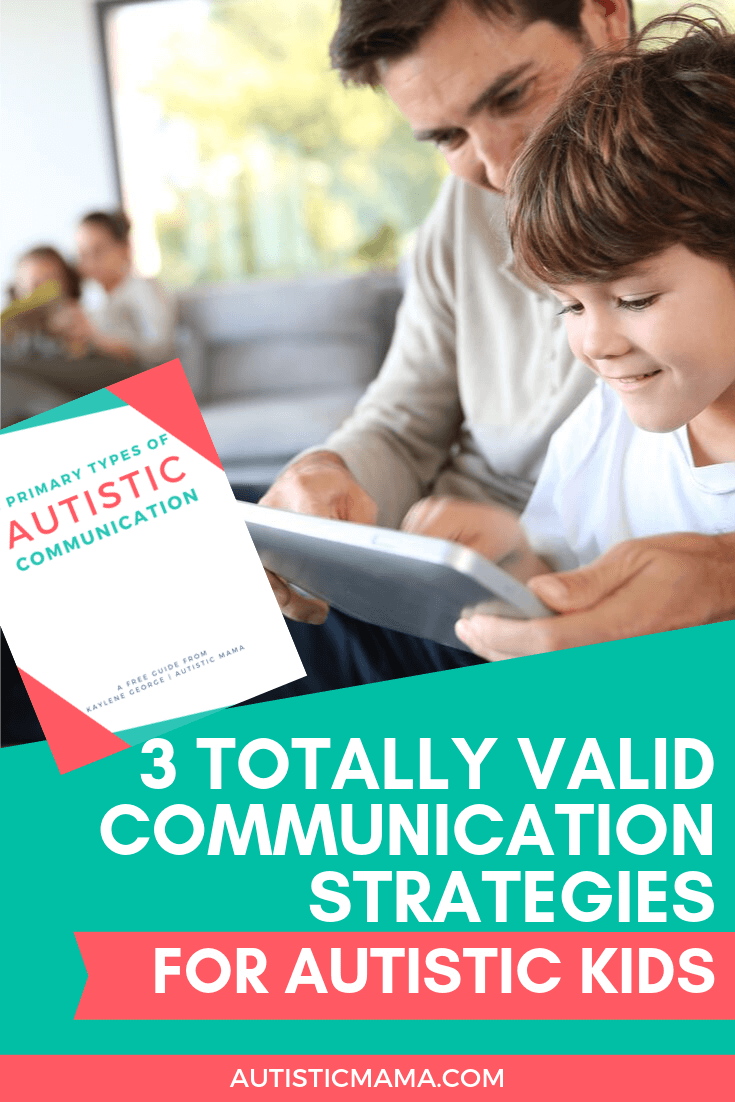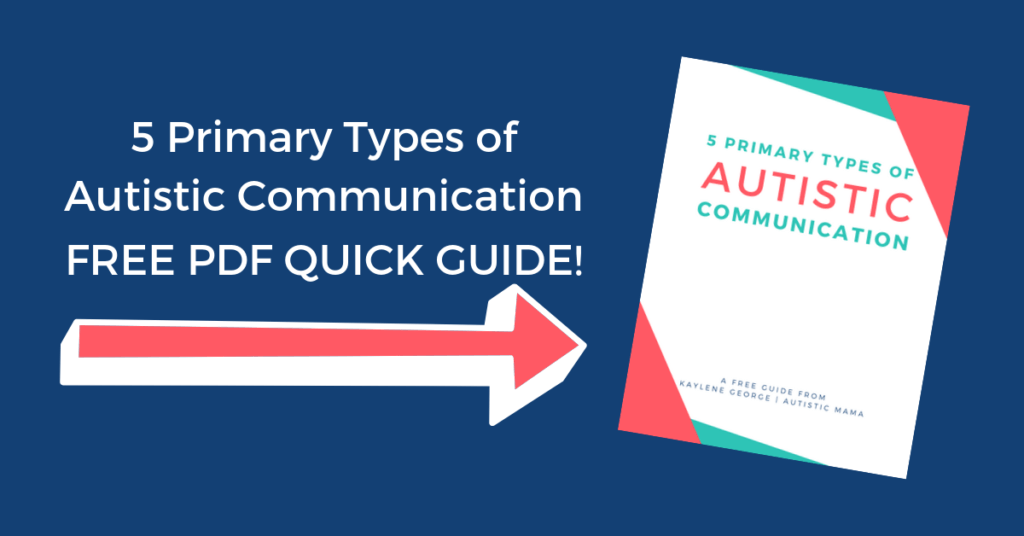When your autistic child struggles to communicate, it feels like everything becomes about one specific thing…
How can you make your autistic child talk?
Sometimes it feels like the only way to help your autistic child communicate is to spend tons of time in therapies teaching them to talk, and then teaching them to talk like they’re neurotypical.
But here’s the deal… There are alternatives to that route!
And you’ll be amazed what happens when you work with your autistic child in their unique communication type…
Because here’s the thing: Autistic communication is different from neurotypical communication, period.
So today I’m sharing 3 totally valid strategies to help your autistic child communicate that don’t involve talking!

3 Totally Valid Strategies to Support Your Autistic Child’s Communication
Oh, and before I jump into the three strategies, I want to share the brand new {FREE} guide I’ve put together… The 5 Primary Types of Autistic Communication.
In this guide, I outline the 5 primary types of autistic communication, the benefits and struggles of each, and give you a specific next step to take once you find out what your autistic child’s primary communication type is!
You can download the guide by clicking here or on the image below!

Okay, now back to the strategies!
#1 Sign Language
Full disclosure, I think that ASL is a beautiful language, and I am consistently learning more. It’s my goal to eventually become fluent.
For now, I know several basic signs, and let me tell you, this is a game-changer for autistics whether they can verbally communicate or not.
I started learning sign language when my oldest was a baby. We taught them signs like ‘more’, ‘please’, and ‘milk’.
Then with A-Man, we used sign language a LOT before he could communicate his needs clearly.
He used signs for potty when he needed his pull up changed, or more water when he was thirsty.
This was one of the first ways we were able to communicate with A-Man when he was younger.
And still, as an adult who can communicate verbally, I use sign language basics when I’m overwhelmed and need to communicate something to my husband.
#2 PECS (Picture Exchange Communication System)
If you’ve been in speech therapy at all, you’ve likely been exposed to some version of PECS before.
Essentially, this is using pictures to communicate.
Whether your autistic child points at the picture or brings you a picture, you’re using PECS.
Now, PECS is a clear choice for autistic children who don’t communicate verbally, but it can also be extremely helpful for those who are already talking.
Ever heard of a visual schedule?
The fact is, some people absorb information visually, and having images can help them to make choices, understand information, or share their knowledge.
And this doesn’t have to be super complicated.
Sometimes it’s as simple as drawing stick figures on sticky notes to make a plan before you do something!
#3 Typing or Texting
Okay, the final strategy I want to share today is typing and texting.
You might think, “my child can’t talk, Kaylene, they certainly can’t type…”
But that’s not necessarily true!
A lot of non-speaking autistics are able to communicate through typing or texting, even when they have no verbal communication at all.
Think about it this way… Have you ever had to have a really difficult conversation, and you decided to do it over email or text instead of face to face?
It just seems easier to gather your thoughts and share them in a clear way when you’re doing things through text… Right?
That applies here too!
Verbal communication takes a lot more energy and effort than communication via text.
So even if you don’t know if your child has the ability, I would encourage you to introduce them to texting or typing communication.
Even if they start out typing only emojis, that is a massive step!
And if your autistic child does have verbal communication skills, I would still encourage you to try out texting or typing with them.
Because like we said, text-based communication can be much easier for us to use when we’re out of spoons.
So those are three totally valid strategies to help your autistic child communicate (without talking)!
And don’t forget to grab your FREE guide, The 5 Primary Types of Autistic Communication here!

